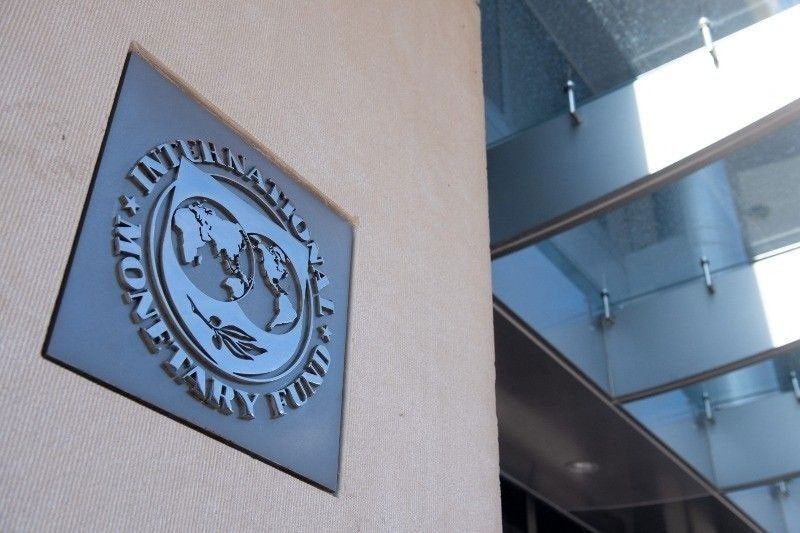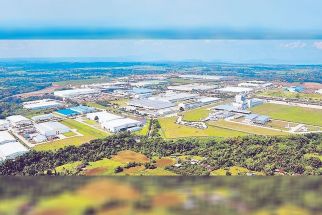IMF: Philippines back to pre-pandemic expansion levels in 3 to 5 years

MANILA, Philippines — Multilateral lender International Monetary Fund (IMF) expects the Philippine economy to return to pre-pandemic levels with an average gross domestic product (GDP) growth of 6.5 percent in three to five years as the country gradually recovers from the pandemic-induced recession caused by the COVID-19 pandemic.
After the latest 2021 Article IV consultation with the Philippines, the executive board of the IMF said the country may grow by 5.4 percent this year and seven percent next year, bouncing back from the record 9.6 percent contraction last year due to the impact of the global health crisis.
“The recovery is expected to gain momentum in the second half of 2021 and in 2022. Real GDP is projected to expand by 5.4 percent in 2021 and seven percent in 2022 due to continued easing of quarantine measures, progress in vaccinations and macroeconomic policy support. Medium-term economic growth is forecast to return to the pre-pandemic rate of 6.5 percent,” the IMF said.
It said the recovery likely slowed in the first half as Malacañang placed the National Capital Region and nearby provinces (NCR Plus) under enhanced community quarantine from end-March to mid-May this year due to the resurgence of COVID-19 cases.
“While a moderate economic recovery started in the third quarter of 2020, the second COVID-19 wave of infections that emerged in early 2021 will likely slow the economic recovery in the first half of the year,” it said.
NCR and adjacent areas are now under enhanced community quarantine anew from Aug. 6 to 20 to slow the spread of the more contagious Delta variant.
The multilateral lender said the economy is recovering after a major economic downturn last year as authorities deployed a comprehensive set of policy responses that helped mitigate the socioeconomic impact and maintain financial stability.
“The (IMF) executive directors commended the authorities’ comprehensive policy response to the COVID-19 pandemic, which has helped to cushion its socio-economic impact. Strong fundamentals and prudent macroeconomic policies have helped to maintain macro-financial stability,” the IMF said.
The IMF, however, noted that there are larger-than-expected uncertainties, including related to the pandemic and the vaccination program, stressing the importance of continuing supportive macroeconomic policies and prioritizing health policy responses to sustain the recovery.
The bank pointed out the Philippines has some fiscal space to respond flexibly if downside risks materialize, as the country remained committed to fiscal consolidation centered on revenue mobilization and expenditure control.
The IMF said inflation is seen accelerating to 4.2 percent this year, exceeding the two to four percent target set by the Bangko Sentral ng Pilipinas (BSP), before easing to three percent next year.
Inflation averaged 4.4 percent in the first seven months despite easing for the second straight month to four percent in July from 4.1 percent in June, reflecting primarily food supply shocks and the price impact of pandemic-related transportation supply restrictions.
“Noting the economic slack and inflation outlook, the (IMF) directors agreed that the monetary policy stance should remain accommodative and data driven, mindful of risks to financial stability. They recommended gradually phasing out direct budgetary financing to safeguard the central bank’s operational capacity and independence,” the IMF said.
Meanwhile, New York-based Goldman Sachs has expressed confidence that the Philippines would regain its economic momentum by 2023, as it expects a GDP growth for the country of more than six percent in the next two years.
In a letter to Finance Secretary Carlos Dominguez, Goldman Sachs president of Asia Pacific Ex-Japan Todd Leland said the investment firm agrees with Moody’s Investor Service in its call to maintain its Baa2 rating with stable outlook on the Philippines.
Leland attributed the firm’s sentiment to the expected rebound of the Philippine economy in the next two years, saying that the country’s fiscal health will allow it to recover from the pandemic.
“This is reflective of the Philippines relative resilience in view of Moody’s negative rating action on 58 sovereigns globally since the start of the pandemic in March 2020,” Leland said in a letter to Dominguez.
“We believe that this rating affirmation is a vote of confidence on the Philippines’ fiscal and external buffers, and policy flexibility during crisis periods, thanks to the astute management by its economic team, under your very able leadership,” he said
Leland said the Philippines manage one of the lowest sovereign debt burdens as measured by the country’s general government debt and interest payments as a share of GDP.
The country’s external debt stock went down by more than one percent to $97.04 billion in the first quarter from $98.48 billion a quarter ago.
Finance Undersecretary and chief economist Gil Beltran said this level of debt was the lowest among five leading economies in Southeast Asia outside of Singapore.
At the end of last year, the external debt of the Philippines translated to 27.2 percent of its GDP, according to Beltran, far from Malaysia’s 67.7 percent, Indonesia’s 39.4 percent, Vietnam’s 38.5 percent and Thailand’s 37.9 percent.
Further, Leland said the Philippines may just be the sole Baa2-rated economy with an account surplus this year and next.
In general, Goldman Sachs anticipates the country to recover from the pandemic with an above six percent GDP growth in 2022 and 2023, surpassing its Baa counterparts which are expected to expand their economy by below five percent.
“GDP growth is expected to rebound strongly and sustainably, averaging above six percent over the next two years compared to under five percent for the Baa median,” Leland said.
- Latest
- Trending

























